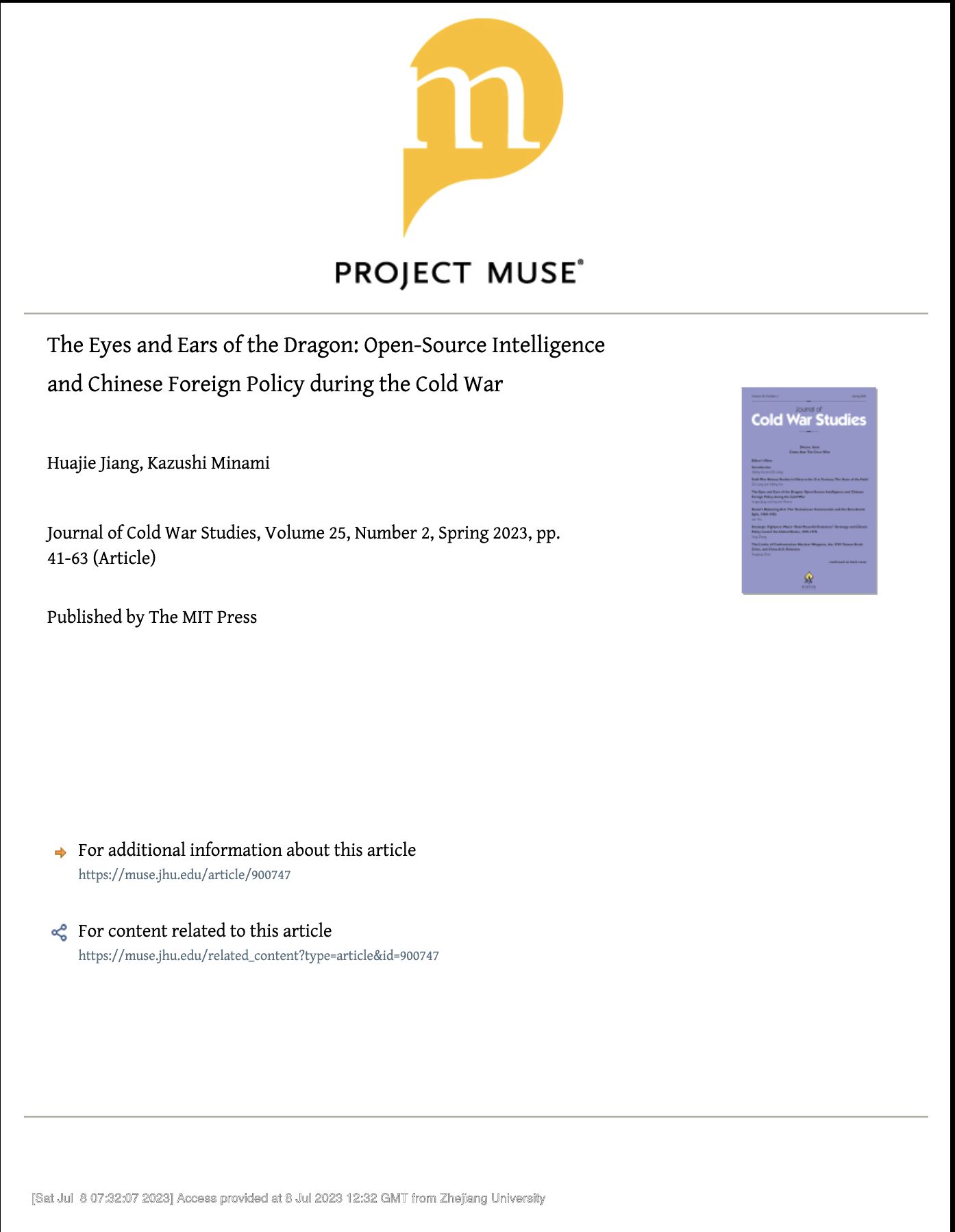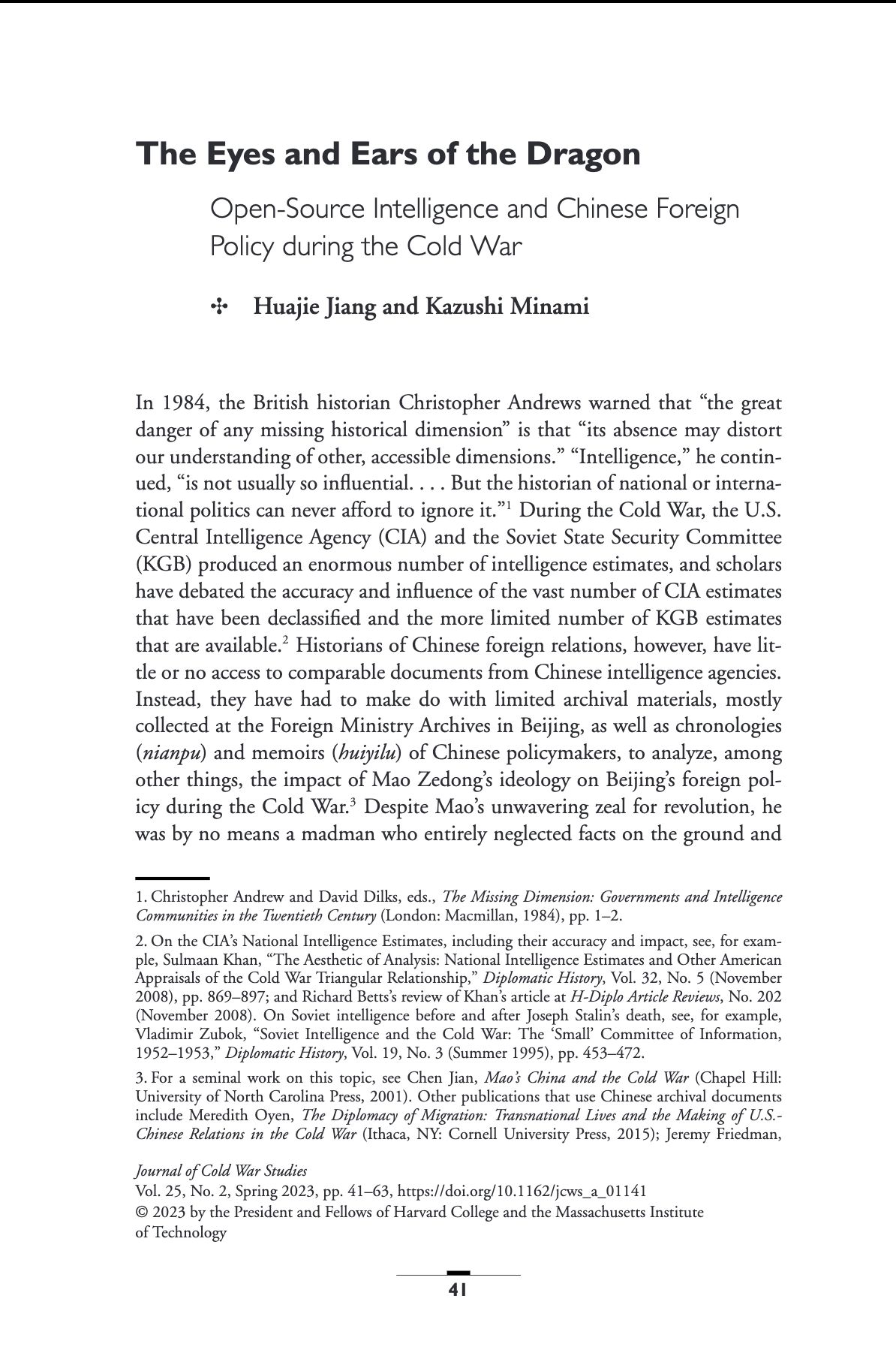上海大学历史系、全球问题研究院蒋华杰副教授在SSCI&AHCI刊物《Journal of Cold War Studies》发表学术论文
The Eyes and Ears of the Dragon: Open-Source Intelligence and Chinese Foreign Policy during the Cold War
Huajie Jiang and Kazushi Minami
【Abstract】
Drawing on recently declassified Chinese sources, this article traces the history of open-source intelligence (OSINT) research in the PRC and discusses its impact on Chinese foreign policymaking during the Cold War. From the time the Fourth Bureau of the Central Investigation Department (CID) was founded, it was headed by veteran intelligence expert Xue Qiao, who collected and analyzed OSINT to produce intelligence estimates for Chinese political leaders. These intelligence estimates covered a host of global and regional topics crucial for Chinese foreign policy, including U.S. politics and foreign policy, decolonization movements in the Third World, and political and economic developments around the world. Available evidence shows that politics and ideology marred the quality of China's OSINT research. When Mao Zedong launched the Great Leap Forward in the late 1950s, the CID's intelligence estimates were distorted to advance his radical political agenda. Later on, China's intelligence research came under attack during Mao's Cultural Revolution. Kang Sheng and other radicals attacked OSINT analysts as traitors, and the CID ceased to function in the late 1960s and 1970s. After Mao's death, the CID was revived, but its intelligence estimates no longer served the new Chinese leader, Deng Xiaoping. Deng's personal tension with CID Director Luo Qingchang, who had criticized him during the Cultural Revolution, hindered the CID's estimates. This political schism in the post-Mao years contributed to the CID's dissolution in 1983.


